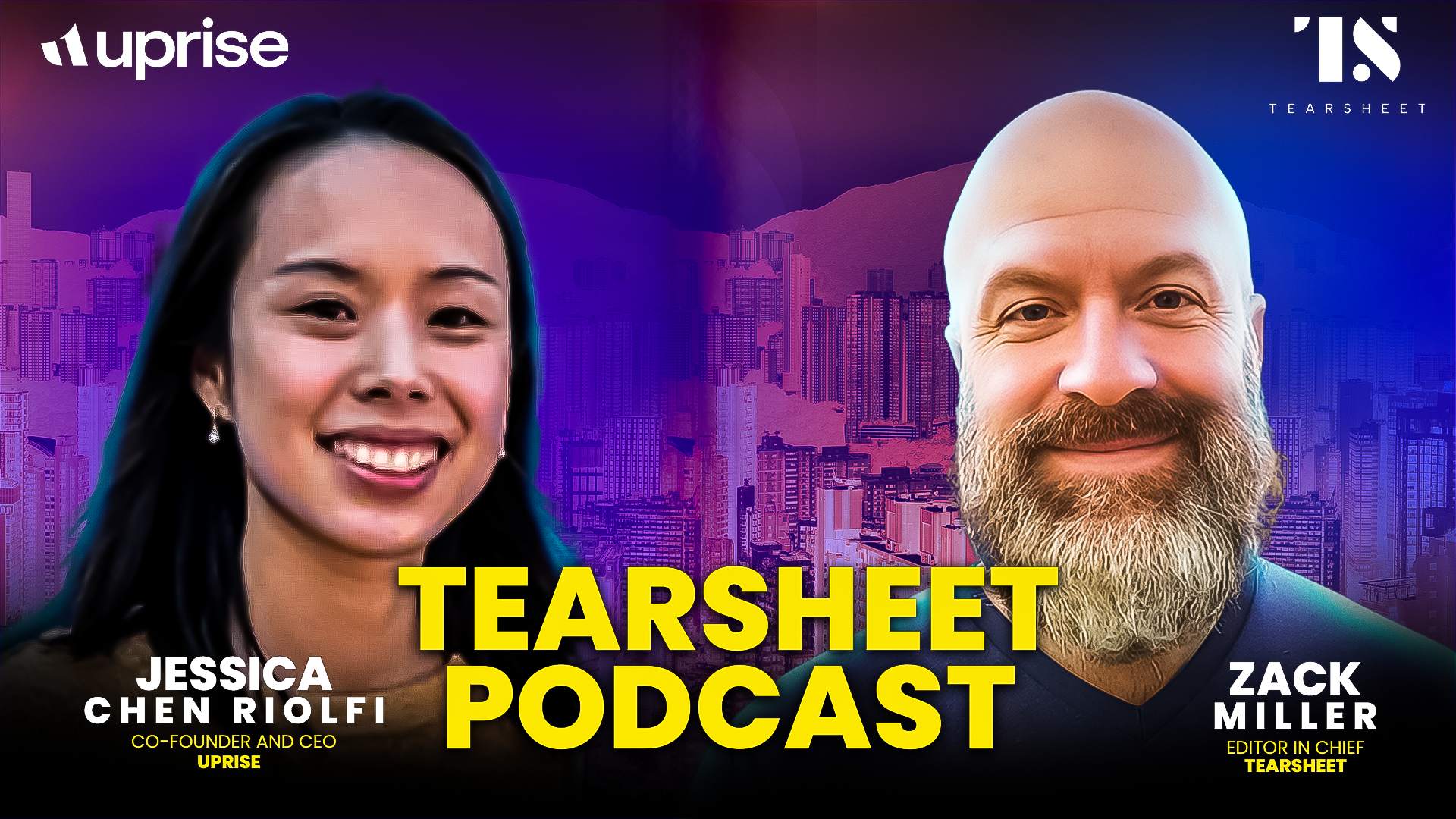Launching a startup is challenging. It becomes even more difficult when tackling personal and business finances that confound entrepreneurs. Enter Uprise, the brainchild of Jessica Chen Riolfi and her co-founders. Uprise offers human-driven financial advisory services embedded into small business (SMB) platforms, like banks or personal finance sites.
Uprise addresses the unique financial needs of entrepreneurs which include dealing with personal and professional cashflow. Jessica has extensive experience from companies like Robinhood, Earnin, Wise, and eBay. This background drives her approach to financial services.
Jessica shares, “Financial advisory, in this context, combines personal and business finances. It helps entrepreneurs make holistic financial decisions.” Lack of personalized financial advisory services at Robinhood inspired the genesis of Uprise, especially for SMBs. Jessica shares a passion for simplifying financial products with her co-founders Chris and Nantha. Together, they work to make financial solutions more accessible, bridging the gap between business and personal finance for small business owners.
Uprise initially targeted Gen Z and millennials but quickly pivoted to focus on older SMB owners. This shift met the growing demand for comprehensive financial advice. It specifically targeted consultants, freelancers, and creators. “The small business world is one where personal and financial lives are intermingled,” Jessica notes. She underscores the intricate needs of her firm’s clientele.
The genesis of Uprise
Uprise emerges from a vision shared by Jessica and her co-founders, Chris and Nantha. They noticed the gap in financial advisory services for SMBs, where personal and business finances often overlap. As Jessica puts it, “We help them make financial decisions. And we kind of ignore the line between business and personal.” This approach recognizes the unique needs of entrepreneurs.
Role of embedded finance in Small Business growth
Embedded finance is at the core of Uprise’s model. It is integrated into SMB platforms and Jessica explains, “Every small business owner interacting with our platform is assigned a human advisor.” This strategy not only builds trust but also addresses the specific financial advisory needs of SMBs. It offers a personalized experience. Jessica highlights the importance of understanding the distinct needs of different SMB sectors.
For example, therapists using the vertical SaaS platform, Heard, prioritize personal relationships. This prompted Uprise to offer more direct communication channels like Zoom calls. “Calls matter a lot to therapists,” Jessica observes. She illustrates Uprise’s adaptability to various client preferences.
Financial planning for entrepreneurs
Uprise has tailored its services to the intricate financial landscapes faced by entrepreneurs. Jessica emphasizes the importance of understanding personal and business finances. She highlights how they are interconnected. She offers advice on entity setup, retirement account options, and mortgage applications. “These are business-related questions, but they very much impact their finances,” Jessica emphasizes. She highlights Uprise’s holistic approach.
Building successful partnerships with SMB platforms
Uprise’s success is intertwined with its partnerships, where Jessica sees a collaborative effort. She notes, “It’s very much a revenue driver for our partners, who are SMB platforms.” Uprise customizes its offerings to meet the unique needs of each platform. This ensures that both partners and end users enjoy their financial advisory services.
The Big Ideas
Uprise focuses on the integration of personal and business finances. “We help them make financial decisions and we kind of ignore the line between business and personal” Jessica explains. She emphasizes the interconnected nature of entrepreneurs’ financial lives.
Personalized financial advisory as offered by Uprise. Jessica states, “Every small business owner who interacts with our platform is assigned to a human advisor.” This ensures that tailored financial advice is adapted to individual circumstances.
Crawl, Walk, Run Approach: “We very much believe in sort of a crawl-walk-run type of embedded approach,” Jessica describes. She highlights Uprise’s phased integration strategy with partners. The purpose is to ensure successful deployment and user adoption.
Uprise focuses on revenue generation for partners. “It’s very much a revenue driver for our partners, who are SMB platforms,” Jessica notes. She highlights how Uprise’s model serves as a revenue generator for its SMB platform partners.
Continuous product evolution is a key attribute of Uprise. “Making sure that our product continues to scale with the new customers coming on board,” Jessica says. She emphasizes Uprise’s commitment to ongoing product development. The aim is to enhance advisor efficiency and meet diverse client needs.
Listen to the full episode










 :::::::::::::::::::::::::::::::::::::::::::::::::::::::::::::::::::::::::::::::::::::::::::::::::::::
:::::::::::::::::::::::::::::::::::::::::::::::::::::::::::::::::::::::::::::::::::::::::::::::::::::




